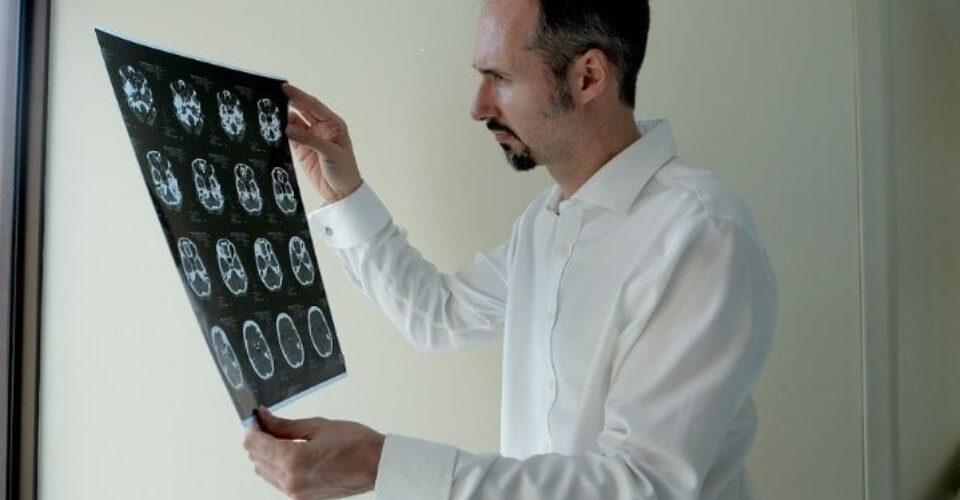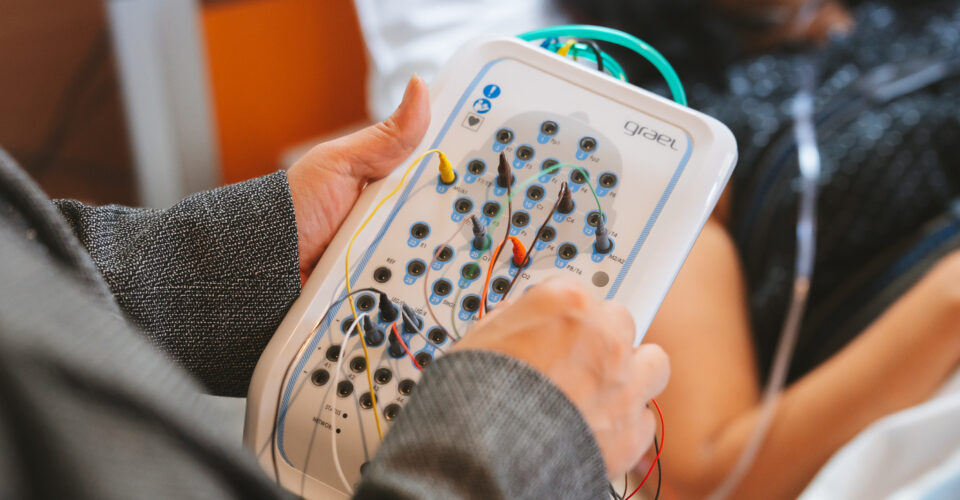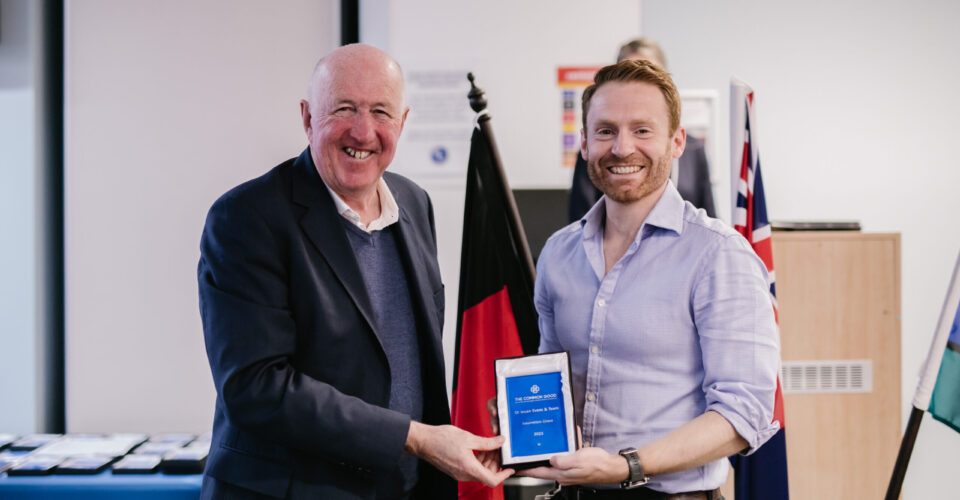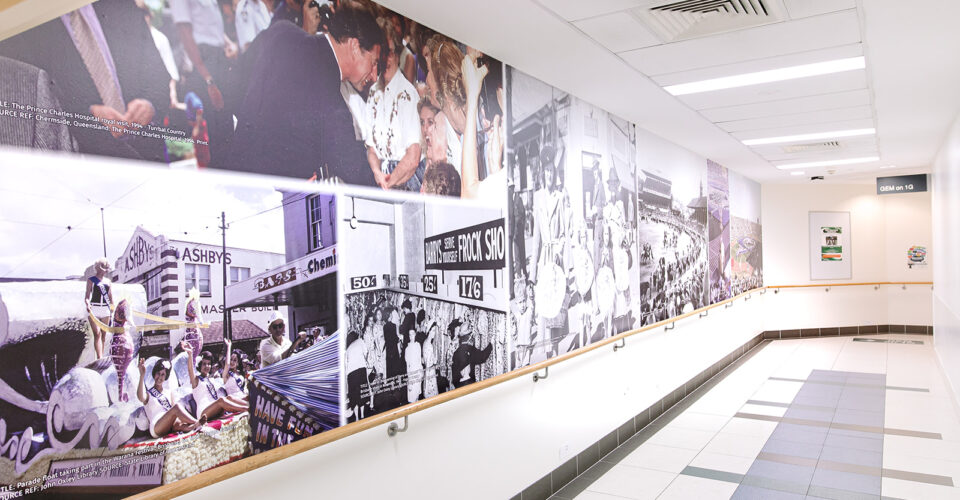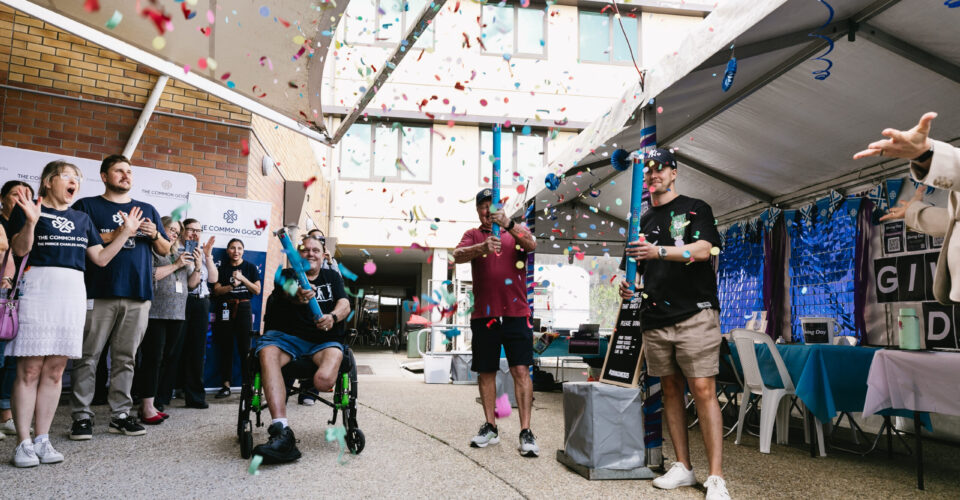This year’s Dementia Action Week theme, A little support make a big difference, aims to increase the understanding of dementia and how we can make a difference to the lives of people who are impacted.
Dementia is the second leading cause of death in Australia – a statistic that many Australians would be surprised to hear [1]. It is estimated that 472,000 Australian are currently living with dementia [2] and almost 1.6 million people are involved in the care of someone living with dementia [3].

The Common Good are currently supporting several initiatives that address this disease, including vital medical research and improvements to patient care.
Dr Eeles research looks to identify dementia early
Geriatrician/Physician and Head of Research of Internal Medicine Services at The Prince Charles Hospital, Dr Eamonn Eeles, and been working with the CSIRO and Queensland Brain Institute on an innovative dementia research project aimed at improving the early detection, diagnosis and treatment of dementia. His research team are using a new brain imaging technique and imaging tracer (isotype) to map the brain to understand changes that occur in Alzheimer’s disease, the most common form of dementia.
It is hoped that being able to map the brain will show the difference between those people who have early signs of dementia and those with a healthy brain. Early identification of dementia is a vital step in being able to determine which patients are likely to benefit from current treatments.
Dementia Sensory Garden project
The Common Good are also involved in the installation of a Dementia Sensory Garden at The Prince Charles Hospital’s Cognitive Assessment and Management (CAM) Unit. The CAM unit provides specialised support and care for patients experiencing memory and behavioural changes and cognitive impairment related to dementia.
The Dementia Sensory Garden project will provide patients with a sensory oasis for moments of relaxation, curiosity and familiarity. Works will include new pathways, raised garden beds, murals, and furniture.
Sensory Gardens can provide dementia patients with several benefits. Being outside in nature, for example, is known to have healing properties such as reducing stress and lowering blood pressure. Having an enjoyable garden space can also encourage patients to visit outside areas which can increase their level of physical activity and mobility.
The plants chosen for the garden will help stimulate different senses. Scented plants such as flowers and herbs can provide a lovely sense of smell, whereas plants with soft velvety leaves or feathery plumes can stimulate the sense of touch.

The Common Good continues to support vital medical research into dementia
For more than 30 years The Common Good have raised money for medical research into chronic diseases such as heart disease, lung disease, mental health and dementia. Without a medical breakthrough it is estimated that 1.1 million people will have dementia by 2058 [4]. If you would like to support The Common’s Good’s important medical research into the area of dementia, make a donation today.
References
[1] Dementia Australia (2018) Dementia Prevalence Data 2018-2058, commissioned research undertaken by NATSEM, University of Canberra
The layout of the Dementia Sensory Garden will also be beneficial with pathways designed so that patients can navigate the garden on their own.
[2] Australian Bureau of Statistics (2020) Causes of Death, Australia, 2019 (cat. No. 3303.0)
[3] Dementia Australia (2018) Dementia Prevalence Data 2018-2058, commissioned research undertaken by NATSEM, University of Canberra
[4] Dementia Australia. Dementia Statistics. https://www.dementia.org.au/statistics date accessed: 20 September 2021.
